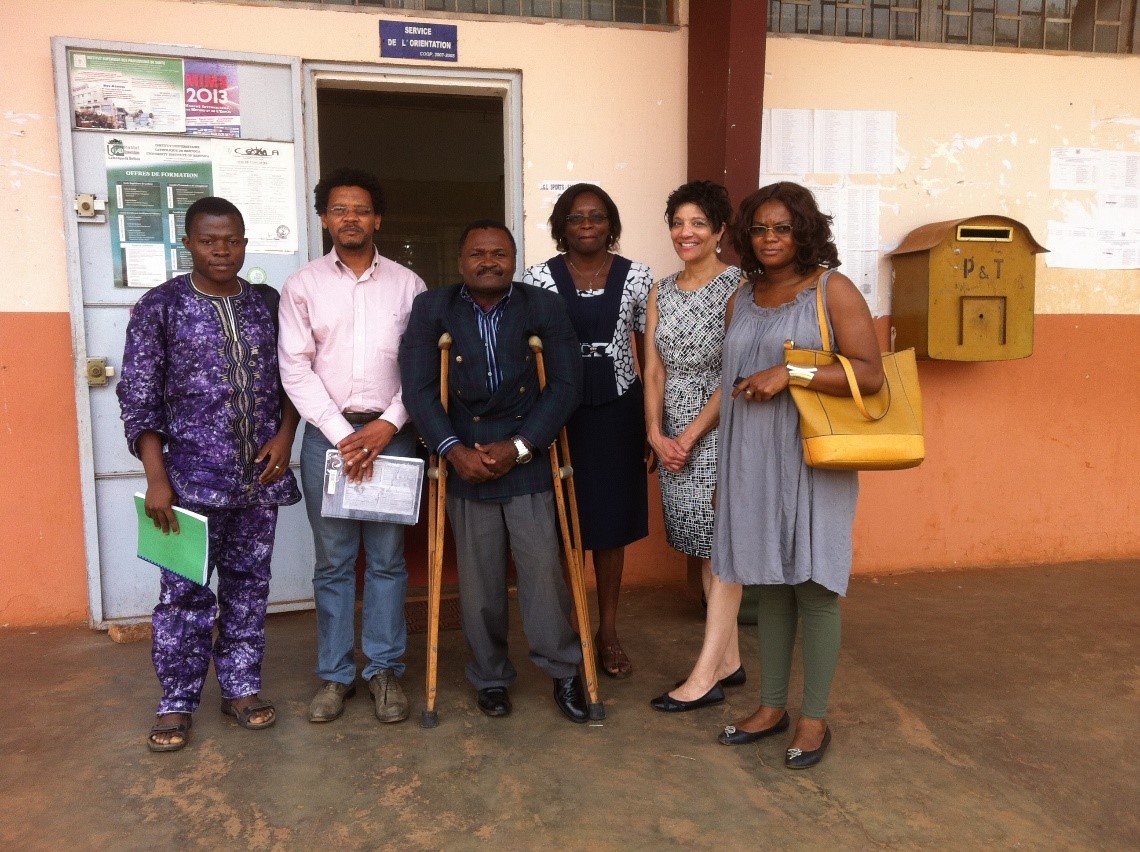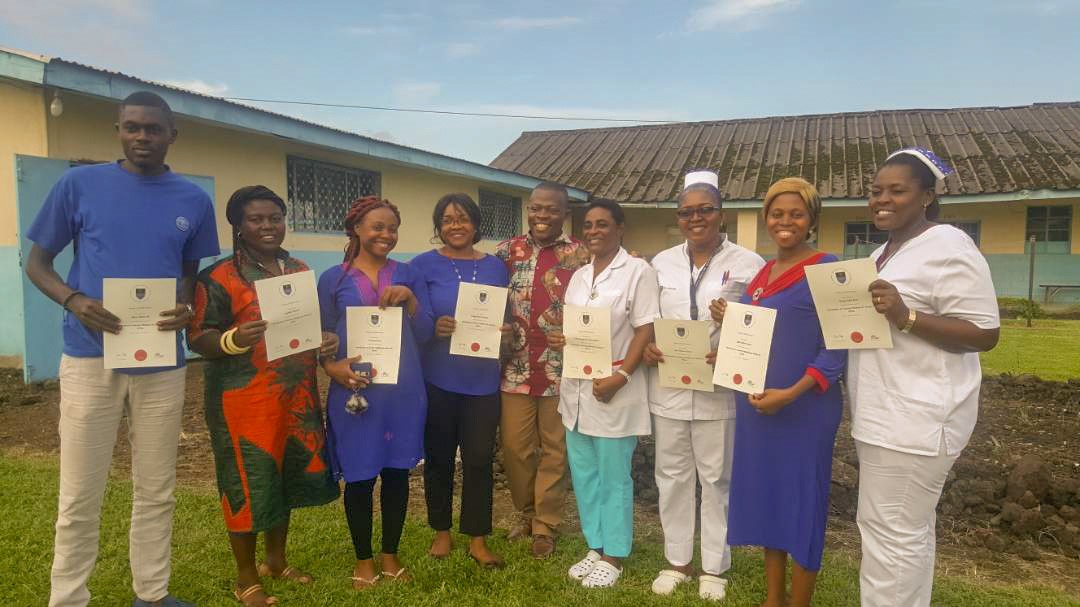Background
The ethical dilemmas presented in developing and developed countries indicate the need to actively engage individuals, families and the community throughout the research process (Camden et al., 2015). Research participants and community in developing nations, in particular, face a significant risk of exploitation and vulnerability (Hurst, 2014). However, little guidance exists on how researchers can meaningfully practice community engagement, especially when cultural barriers are present.
Researchers involved in the International HapMap Project provide a model for community engagement in low-income nations, allowing a broad range of community members to be approached for participation an opportunity to share views, provide input, and remain informed on all aspects of the project (Consortium, 2004). Open-ended discussions with local communities build a relationship of trust while gauging attitudes toward and understanding genetic and genomic research anticipates the social value of research (Consortium, 2004; Rotimi et al., 2007).
Presently, we know very little about Africans' attitudes toward the role of genomic research in their local environment. Collaborative partnership in which local communities are active participants in the research process is an essential part of the ethical framework of genomics research in low-income countries. Only then can Africa be an active participant and key partner in the age of genomics. Hence this research was designed to advance our understanding of researchers, health professionals, and community populations within our collaborative network concerning their perspectives both in genomic research and the public health aspect of Sickle Cell Disease (SCD).
 Photo 1 | This group picture presents the research team, a school teacher who has relatives with SCD and a superintendent who is a SCD patient.
Photo 1 | This group picture presents the research team, a school teacher who has relatives with SCD and a superintendent who is a SCD patient.
Objectives
We aimed to explore perspectives and attitudes regarding genomic research in Limbe, south-west of Cameroon, and to assess perceptions about public health interventions which could help increase awareness, early detection, and prevention of SCD-related complications.
Activities
This project used qualitative methods to understand cultural influences on perspectives and attitudes regarding genomic research and perceptions about public health interventions for SCD-related complications in Cameroon. We had focus group discussions with SCD patients and their families, healthcare workers and medical students from three faculties of medicine in Cameroon (Buea, Douala and Yaoundé) who were on their housemanship posting in District Hospital Limbe. Several SCD patients and their relatives were informed of the Community engagement through a Radio advert of the community engagement activities. This advert was read this several times on the Ocean City Radio, a local radio station. More so, we had formal interviews with some local chiefs, pastors, journalists, lawyers, and a divisional officer of Limbe. These discussions helped us to fine turn our strategy on how to handle the community activities.
After obtaining authorisations from the health and administrative authorities in the south-west region, we held two meetings with sickle cell patients and their families at the conference room of District hospital Limbe in 2016. A semi-structured interview guide structured in scenarios with open-ended questions at the end of every scenario was used.
The interview guide addressed the following broad topics:
- Perceptions of and experience with SCD and SCT
- Perceptions of and experience with Neonatal screening
- Prenatal diagnosis and/or other public health interventions
- Perspectives on genomic research
We gathered the participants' demographic information in a logbook which the hospital administration offered. This demographic information included physical address, occupation and telephone numbers. At the end of every Focus Group Discussion or in-depth interview, we offered a Coffee break and/or token for transport to each participant to compensate for their time and availability. Moreover, for every SCD patient, the hospital administration supported our initiative by offering free medical consultations, and complete blood count to all sickle cell patients who consulted in the hospital during the period of our study (2016).
Key findings
We noticed an increase in the number of sickle cell patients who attended the meetings organised at District Hospital Limbe, i.e. from 3 patients in the first meeting to 10 patients the second. Also, we had a productive conversation with our targeted population. One of the key findings form our discussions is that there are many SCD patients in the south-west region of Cameroon. A possible hypothesis of this supposed high prevalence of SCD was the high frequency of intra-tribal marriages in some parts of Cameroon and more specifically in the south-west region. Also, we had an interesting interaction on their perception of sickle cell disease and the complications. The most common preventive strategy presented by the participants was premarital screening.
The way forward was to train at least 10 nurses who will be able to communicate genomic issues with the general population, organise quarterly meetings with SCD patients, their families and the general public where we shall be updating different participants on the previous and current researches that are going on in the community. We will also have to create a local advisory committee that will serve as a relay between the scientific community and the population.
 Photo 2 | District Hospital Limbe nurses who completed the first online course of genomic medicine for nurses in Africa in 2017
Photo 2 | District Hospital Limbe nurses who completed the first online course of genomic medicine for nurses in Africa in 2017
Challenges
Despite the exciting findings that we had in this community engagement activity; we also encountered a few challenges. One of these challenges was the demise of one of our key informants. This was a SCD patient who held a high position at the University of Buea and had the leadership skill which could be exploited to gather other SCD patients around her. Her loss had a significant impact on the follow up of the community engagement activities.
Furthermore, it was challenging to schedule focus group discussions because most participants' time table did not always coincide. Some SCD patients who initially accepted to be part of a FGD finally find themselves in the hospital on the day of the FGD due to health-related issues.
During the FGDs, some participants did not respect the ground rules instituted at the beginning of the session. The most common example was the tendency of participants to interrupt and speak over other participants. This could have resulted in the discouragement of other participants in responding to some questions. Hence, some participants may have answered questions in agreement with the dominant speakers in the group, or individuals may have opted not to respond to the items already extensively answered by others. This could constitute a limitation to the voices and views expressed in the FGDs.
Conclusion
These community engagement activities initiated by the H3A ELSI project have stimulated several health care workers to become interested in genetic and genomics. This could be illustrated by their participation in the online genomic medicine for nurses in Africa at was organised in 2017. Moreover, District Hospital Limbe has seen an increase in the number of SCD in their consultations and thanks to the aforementioned online course; nurses were equipped with the adequate knowledge to improve in the care of patients with genetic disorders like SCD.
This report is part of the H3Africa: Engagement with Genetics and Genomics Programme Hub
Acknowledgments
We will like to thank District hospital limbe for putting their conference hall at our disposal and facilitating the recruitment of potential candidates to our FGD.
References
Camden, C., Shikako-Thomas, K., Nguyen, T., Graham, E., Thomas, A., Sprung, J., . . . Russell, D. J. (2015). Engaging stakeholders in rehabilitation research: a scoping review of strategies used in partnerships and evaluation of impacts. Disability and rehabilitation, 37(15), 1390-1400.
Consortium, I. H. (2004). Integrating ethics and science in the International HapMap Project. Nature reviews. Genetics, 5(6), 467.
Hurst, S. A. (2014). Declaration of Helsinki and protection for vulnerable research participants. Jama, 311(12), 1252-1252.
Rotimi, C., Leppert, M., Matsuda, I., Zeng, C., Zhang, H., Adebamowo, C., . . . Fukushima, Y. (2007). Community engagement and informed consent in the International HapMap project. Public Health Genomics, 10(3), 186-198.
This work is licensed under a Creative Commons Attribution 4.0 International License


Please Sign in (or Register) to view further.